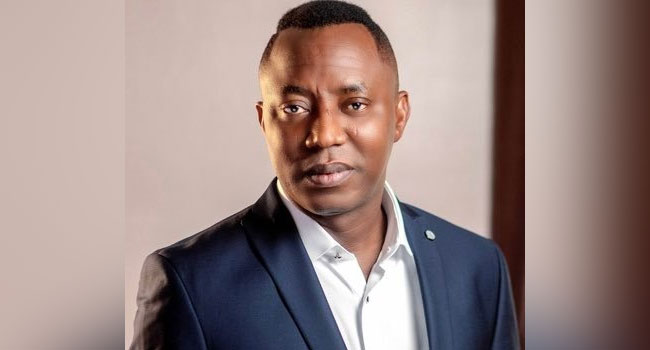Senior Advocate of Nigeria (SAN), Olisa Agbakoba, has renewed his call for the decentralisation of power, saying democracy will remain fragile without devolution of authority and resources to states and local governments.
Agbakoba made the call at a press conference in Lagos, where he presented a policy document titled “Devolution is the Solution – Foundational Reform Agenda for Nigeria’s Transformation.”
He described the blueprint as a guide to restructure Nigeria’s political and economic systems ahead of the 2027 presidential elections.
Agbakoba criticised what he called Nigeria’s “fatal illusion” of federalism, noting that the Federal Government controls 97% of all revenues while most states depend on bailouts.
“Thirty-five of thirty-six states cannot pay salaries without federal support. Seven hundred and seventy-four local governments and thirty-six states exist as distribution centres for federal handouts rather than engines of development,” he said.
READ ALSO: Western Democracy Not Working In Nigeria, Defections Won’t Help It — Agbakoba
He warned that this extreme centralisation has trapped millions of Nigerians in an unproductive informal economy, limiting GDP growth to three or four per cent instead of the ten to twelve per cent needed to escape poverty.
‘Political, Not Economic’

Agbakoba commended President Tinubu’s economic reforms, including fuel subsidy removal and foreign exchange liberalisation, but insisted they cannot succeed without political reform.
“The problem is not economic but political. Twenty-five years of constitutional amendments have failed because you cannot repair a cracked foundation with patches,” he said.
The senior lawyer stressed that Nigeria needs a new constitution, not more amendments, to establish genuine federalism through a massive devolution of powers.
Agbakoba proposed that states should control their resources, policing, electricity, and solid minerals, while keeping 60% of internally generated revenue.
He added that local governments must have constitutional authority over education, healthcare, water, sanitation, and community development.
“The federal government should focus on currency, defence, immigration, and foreign affairs,” the senior lawyer stated.
He said such restructuring would turn Nigeria from a centralised redistribution system into a multi-centred economy where governance happens closer to the people.
‘Untapped Wealth’
Agbakoba noted that Nigeria’s untapped revenue potential of ₦25 to ₦35 trillion annually remains locked by poor legislation and regulatory failures.
He revealed that the maritime sector loses ₦11 trillion yearly through inefficient ports, illegal fishing, and untaxed oil rigs.
The SAN also said critical minerals like lithium, cobalt, and rare earths, worth up to ₦45 trillion, lie unexploited. Agbakoba maintained that implementing these reforms could launch Nigeria into a golden age of development.
“If these reforms are implemented, Nigeria could achieve ₦500 trillion budgets. We could rival Asian economies in infrastructure, education, and healthcare.
Technology hubs would compete globally, agriculture would feed Africa, industries would create millions of jobs, and a strong middle class would emerge,” he said.
He said this transformation could begin within five years, with solid foundations by 2030, if Nigerians reject the current system that benefits a few while impoverishing millions.
Agbakoba stated that rescuing Nigeria’s democracy requires simultaneous political and economic restructuring.
“Political restructuring without economic transformation produces democratic form without substance. Both must happen together to move Nigeria toward genuine liberal democracy,” the senior lawyer said.





